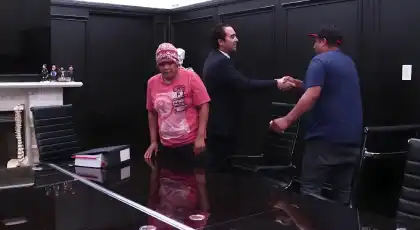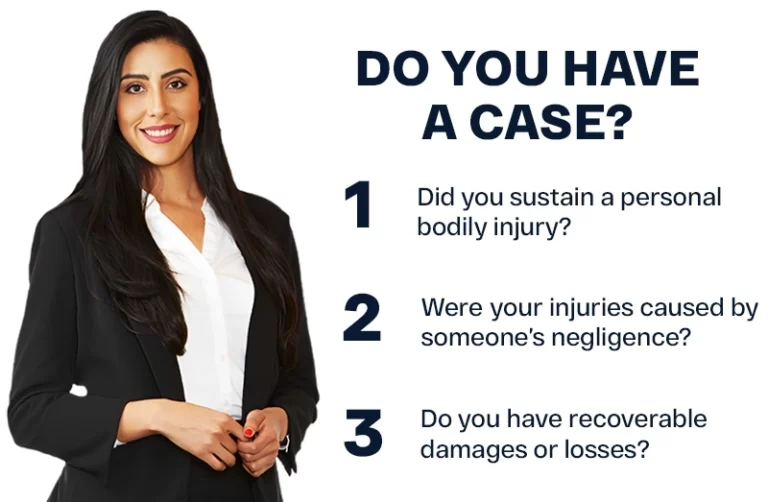TL;DR: Yes, you can claim compensation for anxiety after a car accident in California if it’s medically diagnosed, linked to the crash, and disrupts daily life. With proof from medical records and legal guidance, you may recover damages for therapy, lost income, and reduced quality of life. Call Arash Law at (888) 488‑1391 for legal help.
Table of Contents
Yes, anxiety caused by a car accident may qualify for compensation under California personal injury law. You don’t need physical injuries to file a claim; mental health conditions like anxiety or PTSD can be just as valid if they stem from the crash. If your symptoms are diagnosed and disrupting your daily routine, you may be able to recover costs for treatment, missed work, and emotional suffering.
Here’s when compensation for anxiety might be possible:
- Developing a fear of driving or being in a vehicle (amaxophobia).
- Experiencing panic attacks triggered by reminders of the crash.
- Struggling with insomnia or sleep disturbances due to stress.
- Finding it difficult to concentrate at work or in daily tasks.
- Reliving the accident through flashbacks or constant worrying.
You don’t need to have physical injuries to qualify for compensation. Therapy records, doctor diagnoses, and personal accounts can all help prove your case.
Our car accident lawyers can help you file a claim and guide you through the process. For questions about your case, call (888) 488-1391.
When Does Anxiety Qualify For Compensation?
Anxiety after a car crash may qualify for compensation if it meets the following criteria:
- A medical professional diagnoses you with a mental health condition like Generalized Anxiety Disorder (GAD) or Post-Traumatic Stress Disorder (PTSD).
- Your symptoms interfere with daily life, such as your ability to work, sleep, drive, or maintain relationships.
- The anxiety is caused by the accident, and not by an unrelated issue.
Here’s a real-life example:
A driver was involved in a side-swipe accident while traveling with their fiancée, causing their car to flip and spin out of control. The at-fault driver fled the scene, leaving them shocked and shaken. Since the crash, the driver has experienced anxiety, anger, and a fear of driving. Their fear and shock reflect what it is like to be in a major car accident, where the psychological impact can linger long after physical wounds heal.
They’re now in therapy but still struggle to get back behind the wheel. Because the emotional distress directly affects their daily life, they may be eligible for compensation. Many victims in similar situations ask, “Can I sue for a hit and run accident?” In many cases, the answer is yes.
Under California personal injury law, emotional distress must be serious and directly related to the accident. If you’re unsure whether your symptoms qualify, a personal injury lawyer can help evaluate your claim.
The Step-By-Step Process To File An Anxiety Claim
Filing a claim for emotional distress can feel overwhelming, especially when you’re already dealing with fear, stress, or pain after a car accident. The legal process takes time and attention, but understanding each step can help you prepare.
- Gather Evidence & Build Your Case — Start collecting proof of your anxiety and how it affects your life. This might include therapy records, a mental health diagnosis, doctor’s notes, or witness statements. Store these documents safely. If you can’t gather everything on your own, accident lawyers can step in to help collect the evidence you need.
- Consult an Attorney — When you’re overwhelmed, unsure what to do next, or scared of dealing with the legal system alone, it’s normal to think, “I need a personal injury lawyer.” A car accident lawyer can explain your rights, review your case, and help you initiate your claim.
- Draft a Demand Letter — If the case is valid, your accident lawyer will prepare a demand letter for the at-fault driver’s insurance company. This letter outlines your emotional injuries, the impact on your life, and the compensation you’re seeking. It also includes supporting documents to show why your claim is valid.
- Communicate & Negotiate With the Insurer — Emotional distress claims often face more scrutiny from insurance companies. A car accident attorney can manage these conversations for you, helping you avoid delays and protect your rights throughout the negotiation process.
- Prepare for Trial or Settlement — Some cases go to court, while others settle at the negotiation table. Injury attorneys can explain your options and support you throughout the legal process.
Why Anxiety Develops After A Car Accident
Anxiety is a normal reaction to stress or danger. After a car crash, those feelings can become stronger and harder to manage. Anxiety can be one of the major effects of car accidents, with some people developing a fear of driving or riding in a car. Others may experience panic attacks or symptoms of PTSD.
One study found that 55% of crash victims showed moderate to severe anxiety symptoms before leaving the hospital. That number dropped to 11% after two months and 6.5% after six to eight months. These numbers show how important it is to address mental health after crashes, especially when symptoms start to interfere with daily life.
Seeking compensation for emotional trauma is nothing to be ashamed of. California law recognizes psychological injuries and allows traffic accident victims to recover damages for mental health conditions linked to a crash.
Several factors can lead to anxiety after a crash, including:
- Loss of Control — Car accidents happen fast and without warning. The shock of losing control can trigger strong stress responses like a racing heart, sweating, or shortness of breath.
- Fear of the Unknown — Worries about injuries, medical bills, car repairs, or missing work can cause ongoing anxiety.
- Flashbacks & Nightmares — Some people relive the crash through disturbing memories, dreams, or mental images.
- Stress From Legal Matters — Navigating paperwork, claims, and conversations with the at-fault driver’s insurer can increase emotional strain.
Recognizing You Might Have Anxiety After A Car Crash
Recognizing signs of anxiety after a crash is an important step toward getting the help you need. Many people don’t realize that emotional symptoms may qualify as injuries under California law.
Here are common symptoms of post-accident anxiety:
- Feeling nervous, on edge, or tense.
- Panic or fear that something bad will happen.
- Rapid heartbeat or breathing.
- Sweating, trembling, or nausea.
- Trouble focusing or thinking clearly.
- Fatigue or feeling physically weak.
- Difficulty sleeping or frequent nightmares.
- Avoiding driving or places that remind you of the crash.
These are real symptoms of emotional pain. Getting proper treatment for post-accident anxiety is vital for your health and your legal case.
Mental health issues suffered by car accident victims can lead to compensation if they are severe enough to affect daily life. In California, courts recognize treatments like therapy, psychiatric care, and even trauma-specific services such as EMDR (Eye Movement Desensitization and Reprocessing).
Common Anxiety Disorders After A Car Accident
If your symptoms feel more intense than usual stress, it may be time to speak with a medical professional. Some anxiety disorders can develop after a motor vehicle crash and may qualify for compensation.
Common conditions may include:
- Generalized Anxiety Disorder (GAD) — This involves ongoing worry that doesn’t go away. You may feel anxious about driving, medical bills, or the possibility of another crash.
- Panic Attacks — Sudden, overwhelming fear that may cause chest pain, dizziness, shortness of breath, or a sense of doom, often triggered by reminders of the accident.
- Amaxophobia or Vehophobia — An intense fear of driving or riding in a vehicle. This fear may interfere with daily routines like commuting to work or running errands.
- Post-Traumatic Stress Disorder (PTSD) — A serious condition that can develop after a traumatic event. PTSD after car accidents may cause symptoms such as flashbacks, nightmares, mood changes, and avoiding anything related to the crash.
- Acute Stress Disorder (ASD) — A short-term anxiety condition that often occurs in the first month after the accident. Symptoms may include feeling jumpy, emotionally numb, avoiding reminders of the crash, or reliving it through flashbacks.
When an accident leads to anxiety disorders, a catastrophic injury lawyer can provide valuable support by advocating for victims’ rights. They can help clients access necessary treatments for their mental health, which can be essential for recovery after a traumatic event like a car crash.
How To Prove Emotional Distress After A Car Accident
Emotional distress doesn’t always leave visible scars, but it can disrupt your daily life and mental health. California law recognizes two main types of emotional distress claims: one based on negligence and one based on intentional wrongdoing.
Negligent Infliction Of Emotional Distress (NIED)
NIED occurs when someone suffers severe emotional trauma because of another person’s carelessness. For instance, reckless drivers are liable for more than just the victim’s bodily injuries. They must also answer for the psychological harm they cause.
Questions about who can file are common, such as whether an undocumented immigrant can sue for personal injury. The answer depends on California’s broad personal injury protections, which generally apply regardless of immigration status.
California law allows two types of NIED claims:
- Direct Victim Claim — The person filing the claim experienced emotional distress because they were directly involved in the crash caused by someone else’s negligence.
- Bystander Claim — The person wasn’t physically hurt but saw a close relative being seriously injured or killed. To qualify, they must have been present at the scene, witnessed the injury, and suffered emotional harm beyond normal sadness.
To prove an NIED claim, the victim must show:
- The driver had a duty of care, a legal responsibility to avoid causing harm.
- The driver breached their duty by acting carelessly.
- That careless action caused emotional harm.
- The emotional harm was severe and had a strong effect on daily life.
Intentional Infliction Of Emotional Distress (IIED)
IIED occurs when someone causes emotional harm through extreme or outrageous conduct, either on purpose or with reckless disregard for others. These cases involve behavior that goes far beyond ordinary wrongdoing.
To prove IIED, you must show:
- Outrageous Conduct — The person’s behavior was so extreme that most people would find it unacceptable or offensive.
- Intent or Recklessness — They meant to cause emotional harm or acted with clear disregard for the emotional impact.
- Severe Emotional Distress — Your suffering went beyond normal stress or sadness and caused serious mental or physical symptoms.
- Causation — There must be a direct link between their behavior and your emotional distress.
Unlike negligence claims, IIED focuses on conduct that is intentional or so reckless that emotional harm is almost certain. In both types of claims, strong evidence is key.
Potential Compensation For Anxiety Claims
Car accidents can impact more than just your body and mind. They can take a serious toll on your finances, too. If anxiety disrupts your daily life after a crash, you may be eligible for compensation. A car accident lawyer can help assess your losses and guide you through the legal process.
Here are some potential damages you may receive:
- Therapy & Counseling — Damages may cover mental health treatment costs, including evaluations, therapy sessions, or medication.
- Lost Wages — This is compensation for missed work due to anxiety, panic attacks, or other emotional injuries that made it difficult to continue working.
- Loss of Earning Capacity — Compensation may apply if anxiety or related conditions reduce your ability to work in the future.
- Pain & Suffering — This is a type of non-economic damage in injury claims that accounts for emotional challenges like panic, sadness, or ongoing fear that interfere with everyday life.
- Loss of Enjoyment of Life — Damages also cover limitations on your ability to participate in hobbies, social activities, or other aspects of life you once enjoyed.
- Emotional Distress — This applies to severe anxiety, phobias, or trauma-related symptoms that impact your quality of life.
In rare cases, courts may award punitive damages if the at-fault party acted with extreme recklessness or intentional misconduct. The court awards these damages to punish wrongful behavior and help prevent it from happening again.
Emotional injuries can affect many parts of your life, from work and relationships to daily routines. If you’re exploring your legal options, speak with an experienced car accident attorney. They can help you understand what support may be available.
Frequently Asked Questions About Anxiety After A Car Crash
Many people don’t realize they can file a legal claim for emotional pain, like anxiety, after a crash. This section answers common questions and explains how to build a stronger case with the right evidence and support.
Can I Claim For Anxiety After A Car Accident?
Yes, you may be able to claim compensation for anxiety following a car accident. Emotional distress, such as anxiety, panic attacks, or PTSD, can be just as impactful as physical injuries. Sometimes, you’re left with no cuts or bruises, but inside, it’s a different story. You might be asking yourself, “Can I sue for anxiety after a car accident?” The answer is yes.
If your anxiety is a result of the crash and it affects your ability to carry out daily activities, you could qualify for compensation under personal injury law.
To pursue a claim:
- A medical professional must diagnose you with anxiety or PTSD.
- Your symptoms must interfere with work, driving, or personal relationships.
- The anxiety must be directly linked to the accident.
If you’re unsure whether you qualify, speaking with a car accident claims lawyer can help clarify your options.
What Types Of Evidence Can Help You Build Your Claim For Anxiety?
Claiming non-physical injuries after a crash, like anxiety or trauma, may require medical proof and legal support. A diagnosis from a licensed therapist or psychiatrist is one of the most persuasive forms of evidence. It shows that a professional has connected your anxiety, panic attacks, or trauma to the accident.
Here are some types of evidence that can help prove an anxiety claim:
| Type of Evidence | How It Helps |
| Medical Diagnosis | Shows a professional link between the crash and mental health (anxiety, panic attacks, PTSD, etc.). |
| Journal Entries | Reflect your mood, nightmares, or daily struggles after the accident. |
| Statements From Friends/Family | Confirm noticeable changes in your behavior and emotional state since the crash. |
| Photos/Videos | Visual proof showing changes in daily life or emotions, such as avoiding social activities. |
| Social Media Posts | Reveal your mental state, lifestyle changes, or public comments about how you’re feeling. |
| Prescription Records | Show that a doctor has prescribed medications for anxiety, depression, or sleep disturbances. |
| Medical Records (Counseling/Therapy Sessions) | Prove you are receiving professional treatment for your emotional distress. |
| Expert Opinions/Testimony (Mental Health) | Explains how the accident caused or contributed to your emotional distress. |
Together, this evidence helps show that your anxiety is real and tied to the crash. If you’re unsure how to collect or organize these materials, a qualified car accident lawyer can guide you through the process and make things easier.
How Long Do I Have To File For Anxiety After A Car Accident?
In most cases, you have two years after the accident to file a personal injury lawsuit in California, including one for emotional distress like anxiety. This limit is called the statute of limitations.
Personal injury lawyers recommend acting quickly. The longer you wait, the more difficult it becomes to prove your case. Evidence can get lost or damaged. Witnesses may forget what they saw or move away. Even your memories of the event fade with time.
Filing your claim early gives your car accident attorney more time to gather records, speak with experts, and build a strong case. It also shows that your anxiety is severe and ongoing, not something you made up after the fact. Here’s what you should know:
- Courts set time limits for a reason.
- These rules help ensure the facts remain clear and fresh.
- The law also encourages people to settle their legal problems as soon as possible instead of waiting years.
How Much Compensation Can I Get For Anxiety?
In California, you can file an emotional distress claim if a crash caused significant mental suffering. The amount you can get depends on your case. Factors include how severe your anxiety is, how long it lasts, and how it affects your life. Compensation can range from thousands to millions. Each case is unique and depends on its specific facts and circumstances.
The courts consider several factors, such as:
- Medical records and diagnosis
- How anxiety affects your daily life
- How the other party behaved
- Any physical symptoms you show
- Your personal history and past conditions
- How believable is your story
Some limits may apply, especially in cases involving medical malpractice or government agencies.
Anxiety Can Make Things Difficult, But Support Is Available
A car accident can change your life in many ways. Some are short-term, while others last longer. One of the most overlooked effects is anxiety, which can slowly take over your thoughts, your daily routine, and your peace of mind.
Many accident victims feel nervous about driving again or worry constantly about their health, bills, or the future. These feelings are normal, but you shouldn’t ignore them. Anxiety after a crash affects more people than you might think, and it’s just as serious as physical injuries.
You deserve support not just for broken bones or lost wages but also for emotional pain.
You don’t need to rush, but getting started once you feel ready can make a big difference. A car accident attorney can walk you through the timeline, explain what steps to take, and help you avoid unnecessary delays. They can also offer free accident lawyer advice to help you understand your rights and what support may be available. Early action often leads to a smoother process and stronger support for your recovery.
Call us at (888) 488-1391 or complete our online form to schedule a free consultation. We offer our services across California. No matter where you are, what language you speak, or what personal injury you have, Arash Law may be able to help.











